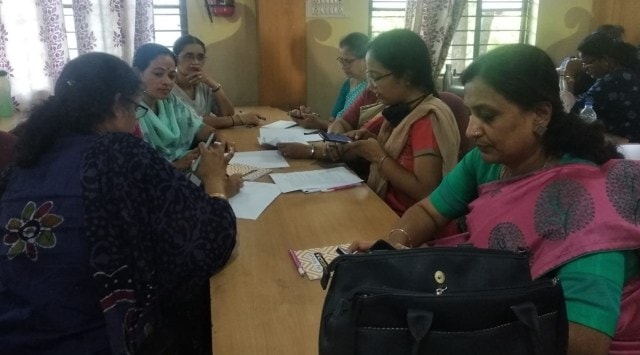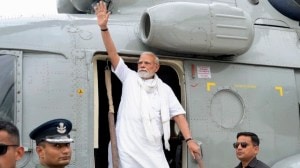Karnataka: Ahead of reopening of govt schools, teachers train for ‘learning recovery program’
The holistic learning model called 'Kalika Chetarike' aims to bridge the learning gap owing to the pandemic.
 Teachers began their training on Thursday (May 5) to implement this program at government schools across the state once the summer holidays conclude next week. (Express photo)
Teachers began their training on Thursday (May 5) to implement this program at government schools across the state once the summer holidays conclude next week. (Express photo)When the government schools in Karnataka reopen after the summer holidays on May 16, students (from Classes 1-9) will be exposed to a holistic learning model called ‘Kalika Chetarike’ or the ‘learning recovery program’ that aims to bridge the learning gap owing to the pandemic.
According to experts in the education department, this program is expected to be implemented for the current academic year (2022-2023) to help the students excel in different academic parameters in all subjects.
Teachers began their training on Thursday (May 5) to implement this program at government schools across the state once the summer holidays conclude next week.
According to the guidelines issued to teachers by the Department of State Educational Research and Training (DSERT), the teachers are expected to explain concepts bilingually using the mother tongue of the child, or English. Teachers are also expected to involve students in classroom activities and group work to enhance their learning outcomes.
According to an official, who is involved in the making of the worksheets for the program, nearly 1,64,000 teachers across 200 educational centers in Karnataka are being trained to implement the learning recovery program.
A senior official in the education department said, “This is not just aiming to bridge the two-year loss (due to Covid), but also the overall academic loss in many cases. This is why we are focusing on functional literacy and numeracy for the first three months. For the next three months, we will focus on core competencies depending on the grade, after which, we will focus on the new academic syllabus the rest of the year. If they go through this, they will be competent enough to go to the next level.”
“There was a disruption in the scrupulous nature of learning among students due to the pandemic. Therefore, as per the recommendations listed in the National Education Policy, the content must be reduced to core essentials. The students are graded in a concentric way. We have mapped out the learning outcomes and learning sheets have been prepared which contain activities. Teachers are trained to implement these learning sheets which are based on discussion, reflection, personalised learning, and sports-based learning,” said the official.
 Nearly 1,64,000 teachers across 200 educational centers in Karnataka are being trained to implement the learning recovery program. (Express photo)
Nearly 1,64,000 teachers across 200 educational centers in Karnataka are being trained to implement the learning recovery program. (Express photo)
Each teacher is trained for two days as part of the program. The state government of Chhattisgarh and other states have shown interest in ‘Kalika Chetarike’ and are expected to implement the same in their respective states, according to Karnataka education department officials.
Retired joint director of school education, Thirumala Rao, believes that the holidays and lockdowns owing to the pandemic have left many students devoid of many core concepts.
“The problem lies especially with the students graduating to higher classes who have missed out on many portions from their previous grades. For example, decimals, and fractions, among other vital concepts, are important for students pursuing fifth grade and above. However, the learning gap has hindered the student’s ability to keep in tune with these concepts. After reopening, the students will be given worksheets and workbooks related to all the subjects and be evaluated based on learning, comprehension, reading, and appreciation,” says Rao, who is also a member of the Karnataka School Quality Accreditation and Assessment Council.













